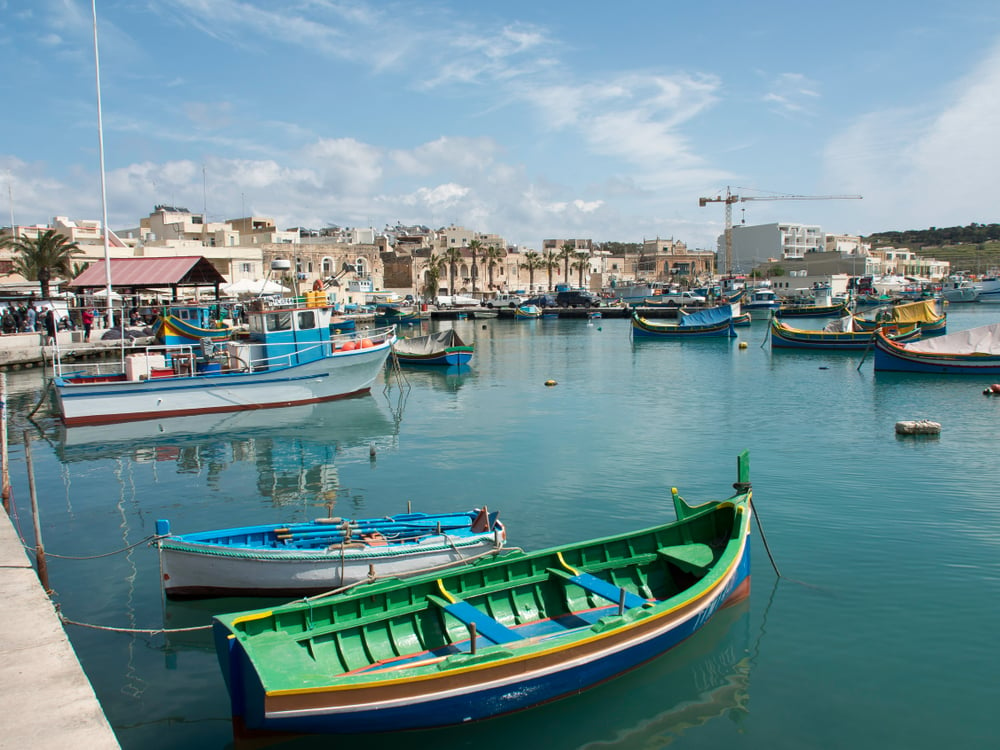Organising an Erasmus+ Program for a Group of 30 Students in Malta
Subscribe to Our Blog

Organisation of an Erasmus+ mobility for a big group is always a challenge, but really, it just needs good organisation skills. In this piece, we discuss a case study covering an experience with a group of 30 students wanting to go to Malta to gain work experience in the tourism industry. It’s written by one of the TravelEdventures’ experts so gives you a good idea as to what’s involved.
Accommodation
The first thing we thought about was the group’s accommodation preference. Usually, for big groups, we advise accommodation in a hostel which includes However, with Malta, there are other, better options - we can offer accommodation in self-catering apartments. Our partners in Malta who provide these types of apartments have a wide range of choice, ranging from those that take 2 people up to 10 people. They’re all comfortable, furnished, and modern apartments. In fact, some of the apartments are located in the same building which makes it very convenient for a group as well as for the accompanying teachers. This specific group decided to stay in our suggested apartments. We chose 5 apartments for them, plus 2 studios for the teachers. All apartments were in the same building – as mentioned, this was extremely convenient.
Airport Transfer
The next important thing to do is for us to organise an airport transfer for the group. We cooperate with experienced transfer companies to take students from and to the airport and our group leader is always right there to welcome the group, drive with them to their accommodation and show them around so they get started.
The Work Placements
Next – with the logistics covered, it’s onto sorting out the work placements for the group. All internships are matched to each of the students with regards to their wishes, qualifications and experience. We do always suggest that students prepare their CVs the best way they can - our group leader re will be happy to help with that and provide advice to achieve the best end result! Competition is strong and a perfect CV can make the difference, delivering a better, more interesting placement during an Erasmus+ or Turing Scheme mobility. Sometimes companies require short online interviews with students. We’d suggest that students research online how to prepare for a job interview - of course our group leader can help with advice too. In this particular case, as mentioned before, students were from the tourism industry and therefore they were placed in hotels, hostels, travel agencies, tour operator companies, restaurants, and coffee shops.
We always recommend the group to arrive at their Erasmus+ or Turing Scheme destination one or two days before starting their Erasmus+ or Turing Scheme internships. This allows the group leader to show them around, introduce the group to the public transport system, and to show them the way from their accommodation to their placements (which is extremely helpful and helps to avoid unnecessary confusion on the first day at work!).
The group leader is available to help the students, and before the Erasmus+ or Turing Scheme mobility starts the group leader always creates a chat group on What´s App where all the students can ask questions about travel, the destination, and the mobility – this helps them to prepare better for the trip. Remember, an Erasmus+ or Turing Scheme mobility is not only a work experience. It involves a lot of fun discovering a new place, people, and culture.
Activities
On request we can organise an activities plan for any group with various things to do and see.
In Malta among others, we can prepare:
Visit to the Marine Park - half day trip
Gozo, Comino or Blue Lagoon & Sea Caves - Full-Day SightseeingMedina City Walking Tour - 2h
Valetta Walking Tour - 2h
Dingli cliffs - half day trip
Game of Thrones tour
Plus, lots more!
The activities depend on the length of the stay, the longer the stay, the more full-day trips we can arrange for you. If the Erasmus+ or Turing Scheme mobility lasts only a couple of weeks, we can arrange short activities during weekdays. Nevertheless, all activities are always lots of fun!
Paperwork
After an exciting time in an exotic new destination, we must still mention necessary paperwork for all the students to complete their Erasmus+ or Turing mobility.
The standard pack of documents for each student includes:
Learning Agreement - signed at the beginning of the Erasmus+ or Turing Scheme internship by all parties.
Quality commitment - signed at the beginning of the Erasmus+ or Turing Scheme internship by all parties.Evaluation form - filled in and signed by the hosting company at the end of the Erasmus+ or Turing Scheme programme.
Internship certificate - filled in and signed by the hosting company at the end of the Erasmus+ or Turing Scheme programme.
Europass - filled in online by the students, signed by host and intermediary company.
Final Report – completed by intermediary company.
The group leader personally takes care of most of the documents and visits every hosting company to make sure that documents are filled in and signed correctly. Sometimes, some documents need more work from the students, but if students need help with online completion of the Europass, for example, the group leader can always help and advise.
After all documents are in place, filled in and signed, and the students have completed their Erasmus+ or Turing Scheme programme, it´s time to take a deep breath and enjoy the last day of the stay with a farewell dinner to share experiences and opinions.
One of the aims of the Erasmus+ and Turing Scheme programme is to prepare the trainees for the challenges they will face in the (international) labour market. This goal is always met at the end of an Erasmus+ or Turing Scheme mobility. For more information on the application process for your next Erasmus+ mobility read our Guide for Funding Applicants or our Handbook for Erasmus Project Management & Execution.

Comments: